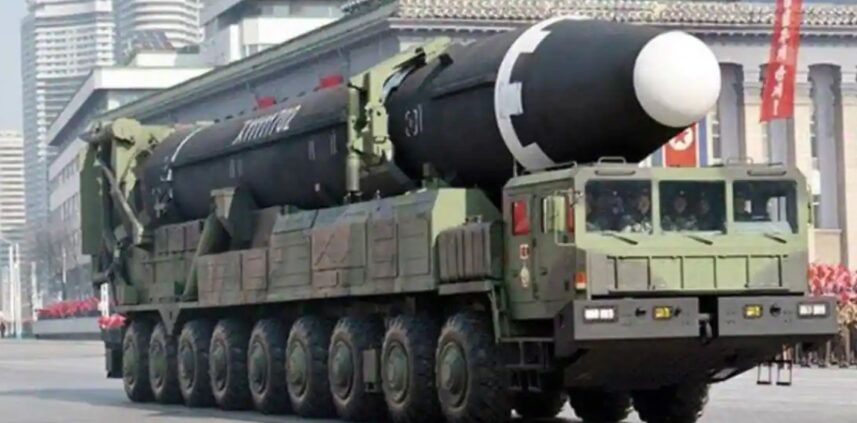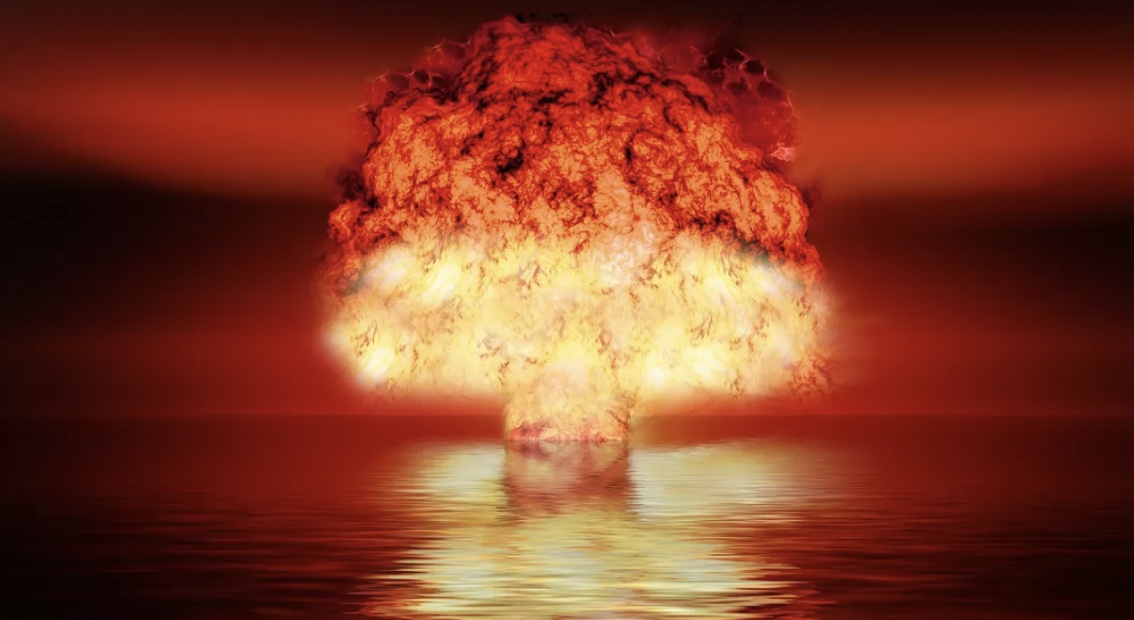The Ansa reported the news that the North Korea today launched two new ballistic missiles towards the Sea of Japan. The alarm was raised by the South Korean army general staff: two short-range ballistic missiles launched from the Samsok area, in Pyongyang, towards the Sea of Japan. The new launches follow Tuesday's test of an intermediate-range ballistic missile that also flew over Japan. The South Korean Staff Command reported having detected the missile launch from Mupyong-ri, in the northern province of Jagang, carried out at 7.23 local time (00.23 in Italy): it flew for about 4.500 kilometers, confirming the overcoming of Japan and touching an apogee of about 970 km at the considerable maximum speed of Mach 17. The intelligence authorities of South Korea and the United States are conducting a detailed analysis to verify the specifications of the missile which, on a first analysis, refers to a Hwasong 12 which in January flew about 800 kilometers at a maximum altitude of 2.000 km

Il government of Pyongyang, in a statement, said that the missile tests carried out by North Korea in recent days are the response to the joint military exercises between the United States and South Korea and after the visit of American Vice President Kamala Harris to Tokyo and Seoul.
The American ambassador to the UN, Linda Thomas Greenfield in a tweet he wrote, referring to North Korea: "enough with the reckless, provocative attitude that leads to escalation, let us return to dialogue ”.
Il American command in the Indo-Pacific announced that the Korean missile launches did not create an immediate threat to the allies. In a note he then specified that "North Korea's series of ballistic missile provocations will further strengthen the deterrence and response capabilities of the South Korea-US alliance and will only deepen North's isolation from the international community". The condemnation of the launch remains firm, seen as "an act of significant provocation ”that undermines peace and stability not only on the Korean peninsula but also in the international community, representing a“ clear ”violation of the resolutions of the UN Security Council."North Korea's series of ballistic missile provocations will further strengthen the deterrence and response capabilities of the South Korea-US alliance and will only deepen the North's isolation from the international community". The US Command added that the launch is read as "an act of significant provocation ”that undermines peace and stability not only on the Korean peninsula but also in the international community, representing a“ clear ”violation of the resolutions of the UN Security Council.
Japan, for his part, he said the missile "probably" flew over the country, warning residents to move to shelters. "North Korea appears to have launched a missile. Please evacuate into buildings or underground ", the Japanese government said in an alert issued at 7:29 local time (00:29 in Italy). National broadcaster NHK said the alarm was in effect for two northern regions of the country. Around 8 am local time (1 am in Italy) the office of the Japanese prime minister then tweeted that "a bullet that appears to be a North Korean ballistic missile probably flew over Japan ". In a statement, the Japanese coast guard said the missile appears to have already fallen overboard and warned ships not to approach any falling objects.
The American Command for Asia and the Pacific said that "Washington's commitment to defending Japan and Korea remains unshakable".
La White House he further informed that National Security Advisor Jack Sullivan spoke separately with his South Korean and Japanese counterparts to work out a "adequate and solid international response ”and reaffirm the“ iron commitment ”of the United States in the defense of Japan and South Korea.
The president of the EU Council, Charles Michel on twitter"We strongly condemn North Korea's deliberate attempt to jeopardize security in the region by launching a ballistic missile over Japan An unjustifiable aggression, in clear violation of international law ".
Hwasong 12
The missile launched by North Korea could be a carrier Hwasong-12, an intermediate-range ballistic missile (IRBM extension) tested for the first time on January 30, 2022 and equipped with a variable range between 3.700 and 6.000 kilometers. Furthermore, the Hwasong-12 is the first ballistic missile developed by Pyongyang potentially capable of reaching and targeting with precision, for example, the US island of Guam. The other credited option concerns the possibility that North Korea has launched a ibc extension, that is an intercontinental ballistic missile which, unlike the IRBMs, has a longer range. Heavy 28 tons and 16 meters high, it is the 'little brother' of the Hwasong-14, tested last July 4th and with a range of 7-10 thousand km. The Hwasong-12 appeared for the first time in the military parade last April 14 in Pyongyang on the occasion of the celebrations for the anniversary of the birth of North Korean founder Kim Il-sung.
Analysts think 20 minutes of flight seems a little too much for a Hwasong-12. It is not yet to be ruled out that the launch may have involved an ICBM with premature interruption of the booster.
The danger of an upcoming nuclear test
North Korea's launch of its first ballistic missile over Japan's airspace in over five years would also herald the arrival of further weapons tests, including the dreaded seventh nuclear detonation..
The Center for Strategic and International Studies (CSIS) in Washington released a report on satellite images collected between 19 and 29 September last on the Punggye-ri site which has so far hosted the atomic detonations.
While all preparations seem to have been completed at tunnel 3 (for the US and South Korea everything is ready for testing), CSIS analysts have surprisingly detected new works in progress at tunnel 4. The business could be part of an expansion of North Korea's nuclear test capabilities beyond tunnel 3, or it could be part of “a strategic deception plan”, of misdirection.
Yesterday, in an emergency meeting of the United Nations Security Council, the US ambassador Linda Thomas Greenfield he accused Russia and China of providing North Korea with "general protection" against efforts to renew and expire existing sanctions. In response, Russia and China defended North Korea as it reacted to the "conflict doctrine in the Pacific region" of the United States. Both Russia and China have called for a resumption of multilateral dialogue on the Korean peninsula. Denuclearization talks failed at the 2019 summit between Thump and Kim, and the Biden administration was unwilling to concede the easing of sanctions Kim seeks.
